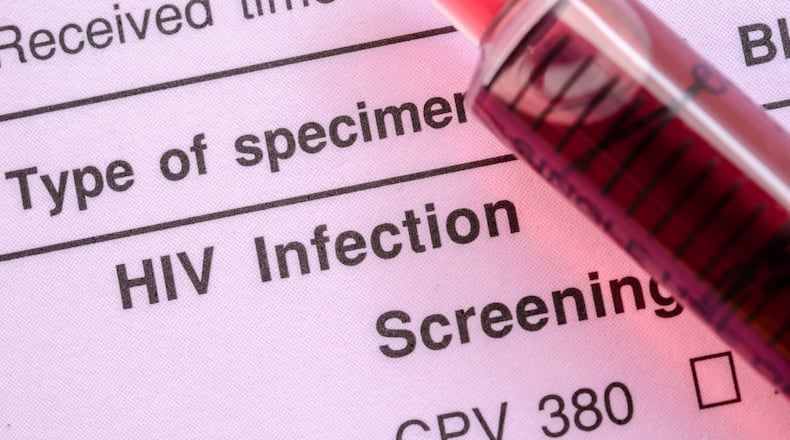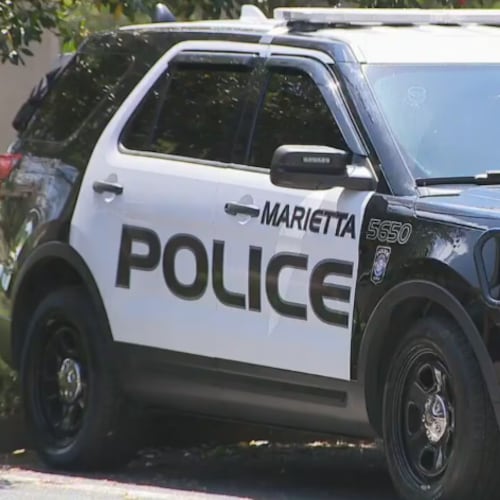When Atlanta Mayor Andre Dickens unveiled his affordable housing plan in October, he alluded to problems in the city’s housing assistance program for people with AIDS and HIV.
Dickens said the program was seriously lagging when he entered office in January, as it was considered a back-burner in the housing agenda. He didn’t say it, but activists have estimated that more than 1,000 individuals and families have been waiting for help.
The federal government’s Housing Opportunities for Persons With AIDS (HOPWA) program gives Atlanta money to administer to 29 metro-area counties. Those funds go to several nonprofits to pay the landlords of those with the illness who are homeless or at risk of becoming so. The city mismanaged the program so badly that the feds in 2020 threatened to cancel the city’s $23 million HOPWA grant.
The Dickens administration and federal officials told The Atlanta Journal-Constitution that the program is now operating more efficiently. Some advocates agree, but others still have concerns.
“Many people living with HIV often give up seeking housing from the city altogether and revert to seeking housing by other means, such as couch surfing or trading survival sex for a roof over their heads,” said Will Ramirez, a public policy and advocacy manager for the Southern AIDS Coalition. “We urge the mayor to work with the City Council to create an allocation from the city’s general funds to cover the interest and closing costs on loans incurred by HOPWA service providers as they wait for the contracts to be finalized.”
Credit: City of Atlanta
Credit: City of Atlanta
Reimbursement delays previously created tensions between the city and The Living Room nonprofit, resulting in its closure. Another provider, Positive Impact Health Centers, obtained loans due to the city’s holdup.
A spokesman for the mayor’s office said new providers are supporting the Living Room’s clients. This year, the city distributed more than $12 million to 17 providers. That also includes Southside Medical Center and Positive Impact even though they no longer work with HOPWA.
By June 30, Atlanta cleared its 2019-2021 payments backlog by giving more than $11.5 million to providers, according to the city. And the city reduced the reimbursement timeline from 144 days to an average of less than 15 days.
Dickens wants to appoint a HOPWA-focused official to a housing board to ensure its needs are met in the city. He also wants to create a task force to address an anticipated reduction in HOPWA’s federal funds. Next year, the city council is set to vote to rework the city’s use of its existing $13.7 million in HOPWA funds.
“While the work to improve our HOPWA efforts is far from over, we remain dedicated to providing quality housing opportunities for everyone,” Dickens said.
A U.S. Department of Housing and Urban Development spokesperson said in a statement that HUD has helped Atlanta with its HOPWA enforcement actions and technical assistance since 2018, when HUD began monitoring Atlanta’s program.
“In the last three years, HUD has performed several monitoring reviews and associated recommendations to cure program deficiencies and non-compliance, including recapturing $4.6 million in funds from the 2016 HOPWA grant program,” the HUD statement said.
Some of Georgia’s HIV advocates are praising Atlanta’s progress after they previously waged negligence accusations against the city. Jeff Graham, Georgia Equality’s executive director, lauded City Hall’s efforts to maintain HOPWA despite future reductions in federal funds.
Credit: Bob Andres/AJC
Credit: Bob Andres/AJC
“We’ve come a long way in a relatively short period of time,” Graham said. “That doesn’t mean we’re 100% of where we need to be...But we’re well away from the days where we felt that there were upwards of 1,000 people or more waiting for housing services through HOPWA.”
Jerusalem House President and CEO Maryum C. Lewis manages the city’s oldest and largest HOPWA-funded program. They use millions of dollars from the city to maintain rent for 375 tenants at several buildings, including some owned by the nonprofit. She also said they pay for counseling and other services to ensure people aren’t just housed, but thriving.
Ultimately, the city’s recommitment to HOPWA means residents like Khalid Morris will have a place to call home. Morris moved into the Jerusalem House in 2002 after he got sick with AIDS. He was diagnosed with HIV in 1996 after years of drug abuse and prostitution amid efforts to cope with his molestation as Catholic schoolboy. He said HOPWA deserves support because AIDS/HIV positive people often lack recognition as humans.
“It’s been a saving grace for me,” Morris said. “When I fell, they were there to pick me up.”
Credit: Jason Getz / Jason.Getz@ajc.com
Credit: Jason Getz / Jason.Getz@ajc.com
About the Author
Keep Reading
The Latest
Featured







